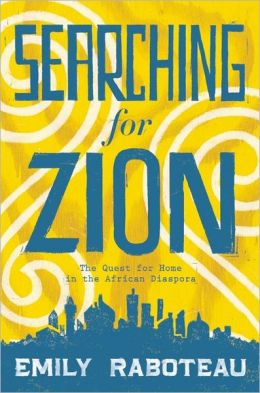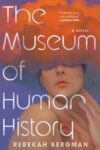 Homi Bhabha’s 1992 essay “The World and the Home” begins with a sentence-phrase, a Barthesian rustle: “In the house of fiction you can hear, today, the deep stirring of the unhomely.”
Homi Bhabha’s 1992 essay “The World and the Home” begins with a sentence-phrase, a Barthesian rustle: “In the house of fiction you can hear, today, the deep stirring of the unhomely.”
Bhabha’s essay praises a notion of literature that rejects seamlessness, that works in the space within, that rejects that binary opposition of the public and the private, that lives in a state of “incredulous terror.” He takes subversive delight in Toni Morrison’s view of her literature as the “fully realized presence of a haunting.”
Certainly, Bhabha’s vision here is entwined with a postcolonial ethics, in a cautious dialogue with the great haunts of black American literature. The rootlessness of the African diaspora in the United States is simply incomparable with the rootedness of the settler population.
Two great migrations, one forced physically by slave ship, the other forced psychologically by an epidemic of lynching, have set the foundational background for blackness as a certain absence of home. This is reified by the literature. Shabazz’s hajj to Mecca is presented as a sort of homecoming in Alex Haley’s Autobiography of Malcolm X, and it is so luminescent because the experience of being unhomed is an exceedingly difficult experience. Maya Angelou’s memoirs are characterized by a searching ferment, sending her around the globe. Richard Wright exited to Paris and never returned. Haley’s other famous book and the miniseries inspired by it was so successful because it attempted to grapple with the question of what it means to be a postcolonial subject: dispossession, fall.
Politically, this has also made it so blackness has consistently been subversive in the United States; hence Baldwin’s assertion that the most terrifying racist and genocidal ideologies were bound up with an epistemology of safety–with the homeland.
It is in this history that we can situate Emily Raboteau’s book, Searching for Zion. Raboteau, a biracial creative writing professor at City College, is inspired to write the book after a discomfiting experience in Israel. Finding herself unwelcome (as she appears Arab) in a society that claims to be a home for a long-dispossessed people (a people to which black people in the United States have historically seen as allegory for their own dispossession) Raboteau decides to travel the world interrogating what Zion means for her and for the African diaspora as a whole.
The book is organized geographically: the first section discusses Israel, the second Jamaica, the third Ethiopia, the fourth Ghana, the fifth, the American South. Much of the book is a dialogue with those Black religions that feel a kinship with Judaism, or are Jews themselves: Ethiopian Jews airlifted by the state of Israel in the ’70s and ’80s, a tiny Afrocentrist sect from Harlem that built a home in the desert, Rastafarians in Jamaica, Rastas who expatriated themselves to Ethiopia, and black Americans who came to Ghana as part of the panafricanist rush of the 1960s.
Throughout, Raboteau asks her interlocutors what they believe home is and what they believe Zion is: where is the place for dispossessed black folk in a white world? She never seems to stray too far from the assertion provided by her (black) father (Albert Raboteau, author of the classic Slave Religion) in the beginning of the book: that when Dr. King was talking about Zion, he wasn’t talking about a place. Rather, her father implies that King was talking about a state of mind. Nonetheless, Raboteau structures her book around place, around people and their homes, which leads this reader to believe that Raboteau is never all too comfortable with viewing Zion and home as something more spiritual than material.
* * *
Raboteau is conscious of the potential tropic nature of a book about searching and dispossession written by a biracial woman. The tragic mulatto archetype of the person who can’t find a home in a country divided by the color line is one with which I am personally quite familiar, having experienced it myself. It seems that escaping from the broad literary narratives of this nation might be a task that takes more than individual will. Raboteau, however, treads this line carefully, and her nuanced engagement with that history allows for the book to acquire a sense of grace rather than tragedy.
For the most part. I failed to find a single instance where Raboteau mentioned “colorism” or “hueism”–terms that describe the exponential racism that impacts darker-skinned black people. In my case, understanding the latter terms were instrumental for me to break out of my tragic sense of placelessness. (I use “tragic” here as an epithet.) Nor does she seem to be uncomfortable with the fact that her book can at times read like a fairly orthodox travel narrative. I’m sure she would be desperate to avoid comparisons between her book and Eat, Pray, Love, but one wonders if she wouldn’t gain a greater sense of clarity of who she is and where the African diaspora stands by looking at the current inhabitants of this country’s prisons and the white supremacist capitalist policies that have brought such harrowing institutions into being. (Works of creative nonfiction in this area are desperately needed.)
There is a moment in the book, towards the end, that illuminates some of the problems in the trajectory that Raboteau has chosen to take. In this scene, Raboteau has found herself alongside Mary Ellen Ray, a black American expatriate who came to Ghana as part of a global invitation on the part of Kwame Nkrumah for professionals in the diaspora to come and modernize the newly independent state. Ray is expressing her desire to return to the United States, feeling that the social problems in Ghana are intractable and finding particular discomfort in the proclivity middle-class Ghanaians tend to have for unpaid domestic labor. Raboteau quotes Ray: “They have a saying here: ‘The ruin of a nation begins in the homes of its people.’” Raboteau then simply moves on to other things.
Actually, I think that this proverb carries with it a deep profundity–with significant implications for the themes Raboteau discusses in the book. The first question that come to mind is, how can we describe a (black) nation without home, and yet a nation that finds itself for the most part in ruins? The African diaspora in the United States continues to be politically subordinated–as any racial statistic will tell you, black folks are massively underrepresented in the top tiers of society, the incarceration and policing rates are considerably larger, as are poverty, lack of access to material resources, lack of access to the means of cultural and ideological production. We continue to search for a Zion of a political and material type, not just of the psychological variety.
In whose homes do we reside, really? Raboteau has confirmed once again that they aren’t our own. What has brought upon us such ruin?
* * *
The response of many leading black intellectuals to the bloodlust following September 11 was one of pronounced concern, if not terror. “Our deepest fears now haunt us”, said Congresswoman Barbara Lee, her soft voice trembling. She became the sole member of Congress to vote against a very broad resolution enabling George Walker Bush to seek vengeance anywhere in the world. Aaron McGruder described in an interview that he could focus on nothing else, and turned his comic strip at the time into effectively the sole voice of in-house daily media dissent to the jingoism then sweeping the land.
Amiri Baraka’s poem did not emerge until ten months later–still then, still today, a society gone mad on war–but it makes sense that the most controversial poem of the century thus far would be, in a fallen country, one of the most poignant. The poem, “Somebody Blew Up America,” attracted widespread criticism for the fact that it poetically implies that the Israeli government had advance knowledge of the September 11th attacks, but I am not interested in debating the tenets of that argument. What I’m interested in is interrogating responses to jingoism, to the ideology of aptly-named “homeland security.” (What greater threat to diaspora, to minority populations?) The poem describes another search for Zion, I think, another search for a promised land. That is, the search to find out how the world came to be as it is.
We are helped in understanding the goal of this verse if we first pause on an aphorism from James Baldwin in his book-length essay “The Devil Finds Work” (Baraka, along with Toni Morrison and Maya Angelou, collectively eulogized Baldwin at his funeral in 1987): “the victim who is able to articulate the situation of the victim has ceased to be a victim; he, or she, has become a threat.” With this in mind, Baraka’s poem seeks to ask the question of “Who?” Who has created the ruin of a nation that we find ourselves in? Who created the victim?
Who blew up America? Melodically, Baraka lists a series of atrocities that have defined this nation, from the multitude of assassinations of the 20th century, from Malcolm to Martin, from Walter Rodney to Allende, to the genocide of the American Indian, to the manifold horrors of slavery. Who, indeed. “We hear the questions rise in terrible flame like the whistle of a crazy dog,” chants Baraka.
Raboteau seems to struggle with articulating the Who? or the How? of the dispossession that ignites the search for Zion. While the book often references the lights of the Black Freedom movement, from Nkrumah to King to Baldwin, the agonistic, dissenting passion that structured these people’s lives is missing. We might not be able to match the allegorical lyricism of King’s writings, or the seething, brilliant outrage of Baldwin, but considering that the moral dilemmas of their time continue to hold sway today, I wonder if when we speak about (not) finding a promised land, we have an obligation to try.
Some of the other reviewers of her book have been surprised at the absence of Raboteau’s mother from the book. While the book is dedicated to her (white) mother, she is almost entirely absent from the narrative, only emerging when Raboteau discusses her father’s absences. I do not find this surprising– as someone who also finds their lyrical voice in Africana, attempting to place your white parent in your narrative can be remarkably difficult. Because Raboteau had made the choice to be a black woman, (Baldwin identified the dilemma of the white-appearing black person a question of ethics– do you stand with the oppressed, or the oppressor?) her attempt to grapple with home, Zion, and her place in the African diaspora is at the same time an attempt to grapple with her father.
The book ends with her and her father returning to New Orleans, the home of his family. Her father did not grow up there. But in response to his daughter asking him if he considered it his home, he responds: “It was never my home, [it] was the only home I ever knew.” Raboteau calls this statement a “paradox.”
I’m not entirely comfortable with the word “paradox” in this situation–for me, it seems to imply a static problem, a riddle that needs to be solved. Instead, I prefer to see this home-without-home as energetic, as being-in-time. As a potential threat. Raboteau ends her book by saying that “the Promised Land is never arrived at.” Maybe. This is how her story ends, but I don’t think it’s the trajectory of the story the African diaspora is in, or the trajectory that this nation is in either. Earlier, Raboteau quotes Dr. King in his final speech “I may not get there with you. But I want you to know tonight, that we, as a people, will get to the promised land.” The faithful refuse to believe that the prophetic voice in those words does not still fail to carry weight. In both the house of fiction and in all houses and homes, one still hears the deep stirring of the unhomely, of the destabilizing voices that rupture an unjust country.
This post may contain affiliate links.








